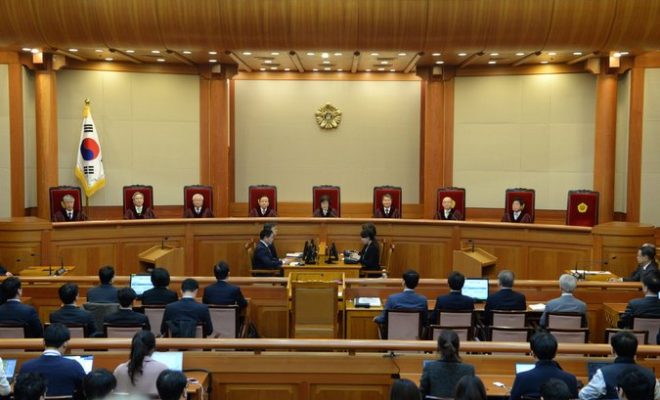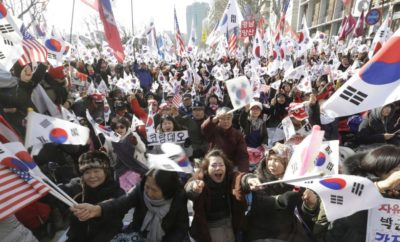
South Korea Removes President Park Geun-hye
SEOUL, South Korea — A South Korean court removed the president on Friday, a first in the nation’s history, rattling the delicate balance of relationships across Asia at a particularly tense time.
Her removal capped months of turmoil, as hundreds of thousands of South Koreans took to the streets, week after week, to protest a sprawling corruption scandal that shook the top echelons of business and government.
Park Geun-hye, the nation’s first female president and the daughter of the Cold War military dictator Park Chung-hee, had been an icon of the conservative establishment that joined Washington in pressing for a hard line against North Korea’s nuclear provocations.
Now, her downfall is expected to shift South Korean politics to the opposition, whose leaders want more engagement with North Korea and are wary of a major confrontation in the region. They say they will re-examine the country’s joint strategy on North Korea with the United States and defuse tensions with China, which has sounded alarms about the growing American military footprint in As
Ms. Park’s powers were suspended in December after a legislative impeachment vote, though she continued to live in the presidential Blue House, largely alone and hidden from public view, while awaiting the decision by the Constitutional Court. The house had been her childhood home: She first moved in at the age of 9 and left it nearly two decades later after her mother and father were assassinated in separate episodes.
Eight justices of the Constitutional Court unanimously decided to unseat Ms. Park for committing “acts that violated the Constitution and laws” throughout her time in office, Acting Chief Justice Lee Jung-mi said in a ruling that was nationally broadcast.
Ms. Park’s acts “betrayed the trust of the people and were of the kind that cannot be tolerated for the sake of protecting the Constitution,” Justice Lee said.
As the verdict was announced, silence fell over thousands of Park supporters who rallied near the courthouse waving South Korean flags. Soon, they tried to march on the court and called for “destroying” it. When the police blocked them, some of the mostly elderly protesters attacked the officers with flagpoles, hurling water bottles and pieces of the sidewalk pavement. Two pro-Park demonstrators, ages 60 and 72, died during the unrest.
Ms. Park did not comment on the ruling, and remained in the presidential palace after her removal from power. But In Myung-jin, the leader of Ms. Park’s conservative Liberty Korea Party, said he “humbly respected” the ruling.
With the immunity conferred by her office now gone, Ms. Park, 65, faces prosecutors seeking to charge her with bribery, extortion and abuse of power in connection with allegations of conspiring with a confidante, her childhood friend Choi Soon-sil, to collect tens of millions of dollars in bribes from companies like Samsung.




